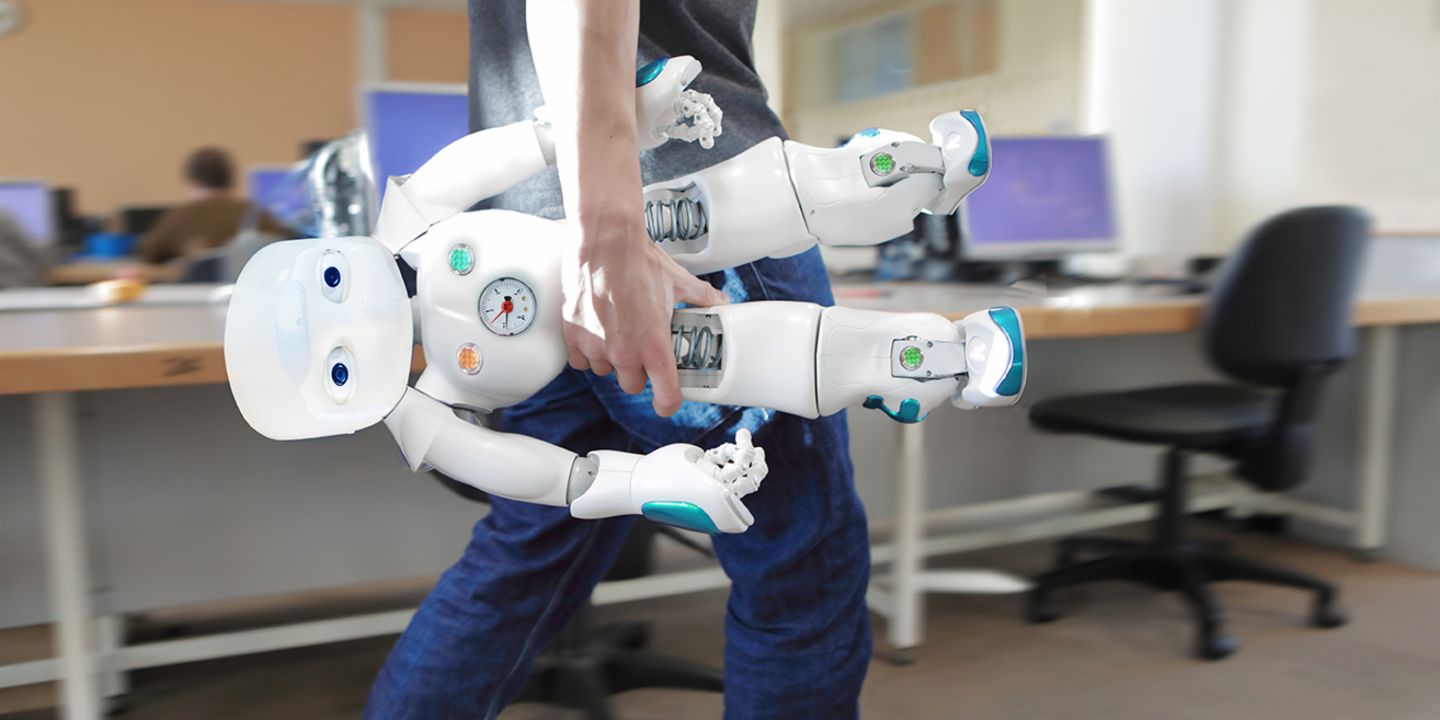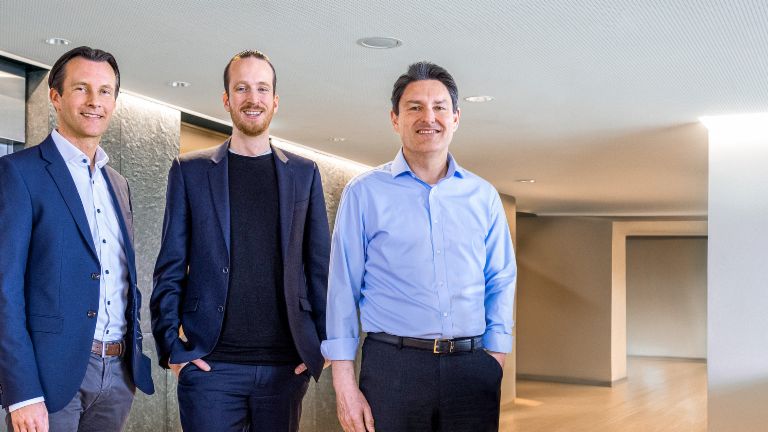Artificial intelligence in customer service: What’s next, ROLF?
Svea Finans in Norway is a so-called Preferred Partner of international debt collection service provider EOS. Artificial intelligence is supporting its staff members in receivables management, giving them more time for complicated cases. A chatbot is also set to go into service soon.
- Artificial intelligence can complete a lot of tasks in the customer service area.
- At Svea Finans in Norway, the AI system ROLF helps staff with recommendations on the best next step in their conversations with defaulting payers.
- A chatbot is also set to be incorporated into the communication process in future.
The Norwegian branch of debt collection service provider Svea Finans, a partner company of EOS, has a new employee named ROLF. ROLF never sleeps. He is on duty day and night, maintains an overview of all accounts, ticks off payment receipts and makes a note of outstanding receivables. When his co-workers come into their offices in the mornings, he helps them to communicate with defaulting payers. ROLF is a robot – strictly speaking an artificial intelligence (AI).
Continuous improvement through machine learning.
“Thanks to ROLF, our communication with defaulting payers is now running a lot more smoothly,” says Stian Ellingsen, Team Leader Billing & International Debt Collection. The AI system produces legal assessments for various cases, updates address data and analyzes information from official bodies and credit agencies. Based on its analysis, ROLF then recommends which next step has the greatest chance of succeeding in a particular case: Does it need to be a letter, an SMS or a phone call? Does the defaulting payer need to be given a bit more time? Should Svea Finans perhaps take legal proceedings after all against an individual with so many unsettled bills over a long period?
.jpg/jcr:content/Stian_og_Magnus_3_(003).jpg)
And ROLF keeps on learning. The AI looks retrospectively at which of its suggestions for making contact were successful and which were not. Did a person of this age and gender in this situation answer a letter and settle the bill? Or only a part of it? What was the best approach for getting him or her to pay the remainder outstanding? And what might work better in a similar situation next time round? “We have given the system the opportunity to learn and continually adapt itself, so that it can increase its success rate in customer service,” says Magnus Bødtger, developer and AI expert at Svea Finans.
Customized technology.
As far back as 2013, experts at the company sat down together to identify the tasks and processes where automation is particularly useful. Their first step was to develop the in-house automation software Sidra on which ROLF is based. “We wanted to be independent and work with customized software that would allow us to implement changes directly ourselves,” says Bødtger. There is no deeper meaning to the name ROLF; the developers just found it to be a suitable choice.
In this context, the introduction of the AI was both market-driven and customer-driven. Svea Finans, which was established in Sweden in 1981, has subsidiaries in eight European countries meanwhile and aims to further expand its operations. To keep costs low in a fiercely fought market, Svea Finans has to automate certain tasks and processes. “In addition, our customers are increasingly asking for AI-based processes,” says team leader Ellingsen. The reason for this is the greater accuracy that is possible.
We have given the system the opportunity to learn and continually adapt itself, so that it can increase its success rate in customer service.
Previously, staff had to collect all the data on a case from the various files while keeping track of all other aspects of customer service. Thanks to ROLF, the failure rate has dropped substantially and the success rate for settling outstanding receivables has increased. “We are seeing a significant improvement,” says Ellingsen. In this context, data protection is essential, so one member of staff is wholly responsible for checking compliance with the GDPR and other regulations.
It’s not just the clients who are satisfied but the defaulting payers as well. The reason for this is that thanks to the use of AI, the collection agents at Svea Finans have fast access to all relevant data. This means they can answer queries faster and provide better information. Defaulting payers get proper answers quickly, can see their financial status at a glance and can easily request documents like copies of invoices. “This in turn leaves our collection agents free to handle complicated cases and nurture contacts,” says Ellingsen.
Human intervention possible at all times.
An important aspect is that every step taken by the AI is monitored by human beings who can intervene in especially tricky cases to take over the entire process. And this will continue to be the case when ROLF doesn’t just conduct the legal assessments but also takes autonomous action, e.g. transferring complete cases to judicial officers.
.jpg/jcr:content/Stian_og_Magnus_2_(003).jpg)
The next step in the automation of customer service will be a chatbot that answers questions from defaulting payers or sends information. According to Bødtger, Svea Finans in Norway is currently exploring whether the firm should purchase this kind of chatbot as a ready-made solution or whether, as it did with Sidra and ROLF, it will do the programming itself. Although in either case the bot will be linked to all systems, a human being will be able to switch it off at any time. “The machines are not taking over the power,” Bødtger stresses. “We will always need people to monitor these kinds of communication processes.”
Contact
Photo credits: PeterCade / Getty Images, EOS
Explorez davantage EOS



